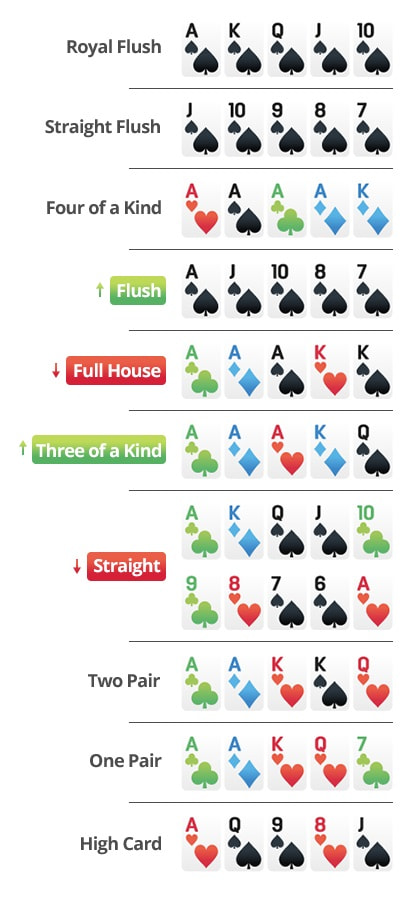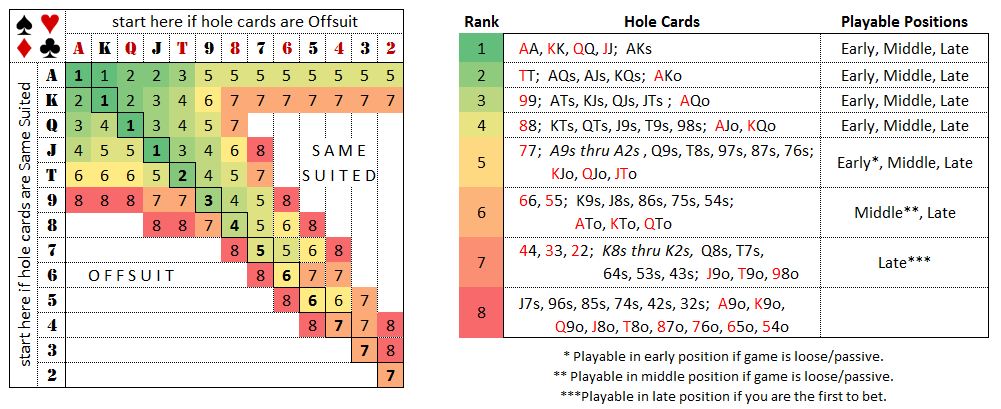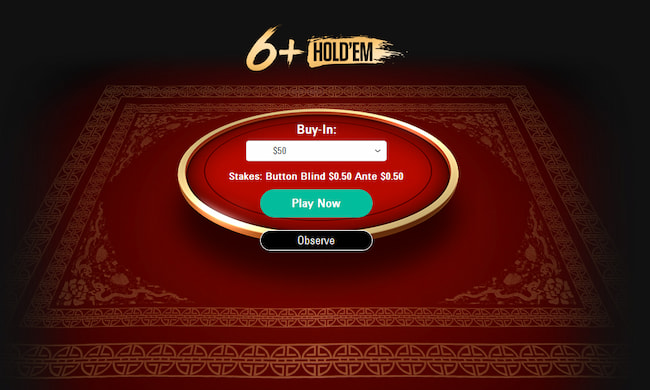If you’ve been following the poker news, even occasionally, you’ve definitely read about “Short Deck”, a new poker game that gathers seasoned pros and wealthy business people alike. Short deck hold’em poker is a novel and dynamic variant redefining the poker landscape, especially considering the high roller scene. Originating from vibrant hubs of poker activity like Las Vegas and Macau, short deck poker is rapidly gaining popularity. Join us as we delve into understanding the rules, strategies, and exciting elements that this variant introduces to traditional poker play.
The short deck poker rules: a brief overview
Before we get the ball rolling, let’s clear up one thing. What in tarnation is short deck? The name kind of gives it away, doesn’t it?
Short deck, also known as Six-Plus Hold ’em, is a poker variant where you play with a stripped-down deck. And by stripped down, we mean you toss out all the 2s through 5s, leaving a mere 36 cards in play. You’re probably scratching your heads, wondering how this changes the game. We’re here to explain.

What sets short deck apart
By ditching the lower cards, short deck throws a spanner in the works for traditional poker strategies. While you still have only two hole cards, up to five community cards and invariably, the straight flush is the highest possible hand, in the whirlwind world of short deck a few hands rank differently:
- A flush beats a full house
- Three-of-a-kind crushes a straight
- An Ace can count as a 5 to form a 9-high straight (A-6-7-8-9)
Removing the lower cards from the deck changes the probabilities, thus, different hand rankings. There are, however, games which include the regular texas hold’em rankings – always remember to make sure what’s the case in your poker game.
Unraveling short deck strategy: mastering a game of probabilities
In the realm of short deck poker, understanding the altered probabilities is the cornerstone of formulating a successful strategy. Due to the trimmed deck, the likelihood of landing high-value hands increases significantly, leading to a substantial shift in the game dynamics. The probabilities in short deck vary considerably from traditional poker, making it a test of your ability to navigate an entirely different landscape of outcomes. It’s paramount to understand these modified probabilities and adapt your strategies accordingly, making the game an exhilarating blend of skill, luck, and strategic foresight.
A few examples of differences in probabilities between short deck and texas hold’em are:
- You are twice as likely to get dealt pocket aces in short deck than in texas hold’em.
- If you hold an open-ended straight draw on the flop, you still look for the eight out to hit, but instead of 47 unknown cards, there are only 31.
- It’s easier to make a full house or a straight in short deck, hence the altered card ranking.

Comprehending hand values in short deck: a game changer
Another critical aspect of short deck strategy involves understanding the adjusted hand values. Given the rule changes, straights and flushes become rarities that can substantially sway the game’s direction. Awareness of the recalibrated hand hierarchies is vital; players must thoroughly internalize these alterations to make the most of their hands. As we’ve mentioned in short deck, a flush supersedes a full house, and three-of-a-kind takes precedence over a straight. Therefore, being acutely aware of these adjusted hand rankings can provide a significant edge during gameplay.
Embracing aggression: play short deck poker fearlessly!
Finally, short deck poker calls for a more aggressive style of play, making it a high-adrenaline and high-stakes game. With the potential for stronger hands, players tend to adopt a more assertive strategy, often leading to sizable pots and exhilarating showdowns. Passive play is less likely to succeed in the fast-paced environment of short deck poker. Therefore, adopting an aggressive strategy is crucial to navigating the thrilling, high-risk, high-reward dynamics that define this captivating poker variant.
Short deck: a player’s perspective
But what’s the commotion about short deck, you might ask? Here’s the scoop from the horse’s mouth. Many poker enthusiasts and professional players alike reckon that short deck puts a fresh spin on traditional poker. It’s more volatile, exciting, and challenging. Plus, it offers more chances for monumental comebacks, making it a hit for spectators and players alike.

Short deck poker is here to stay
Short deck poker, with its vibrant dynamics and high-octane gameplay, has captured the attention of seasoned professionals, breaking into the world of high-stakes games. Esteemed players such as Phil Ivey and Tom Dwan have praised the format for its aggressive nature and the innovative strategic dimension it brings to the table. The stripped-down deck, leading to stronger hands and bigger pots, elevates the game’s excitement, luring spectators and injecting fresh enthusiasm into the poker community.
The modified hand rankings and the pronounced element of risk and reward make every round a thrilling experience, appealing to players seeking a novel challenge. Furthermore, the growing popularity of short deck game across the globe signifies a promising future for this variant. It continues to gain momentum and is poised to become a staple in prestigious poker events, hinting at a bright and dynamic future for the game.
